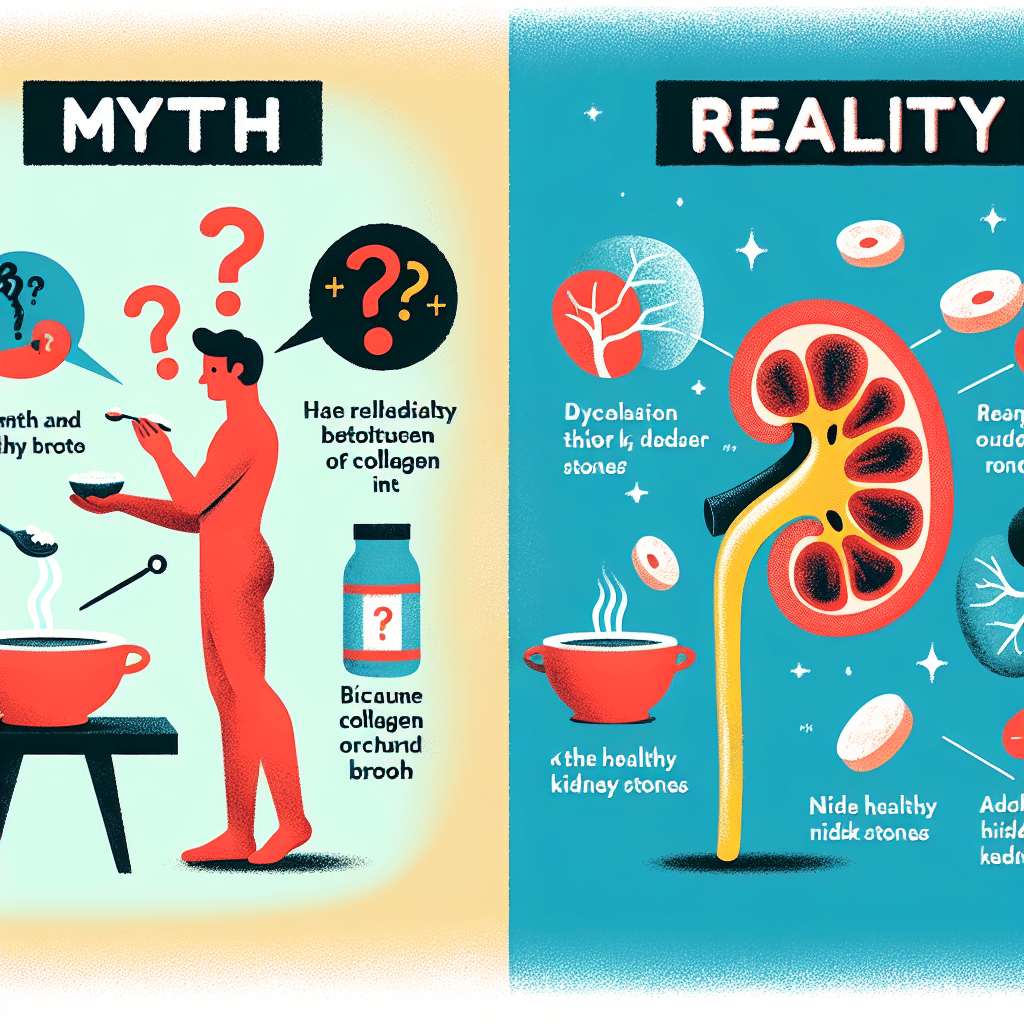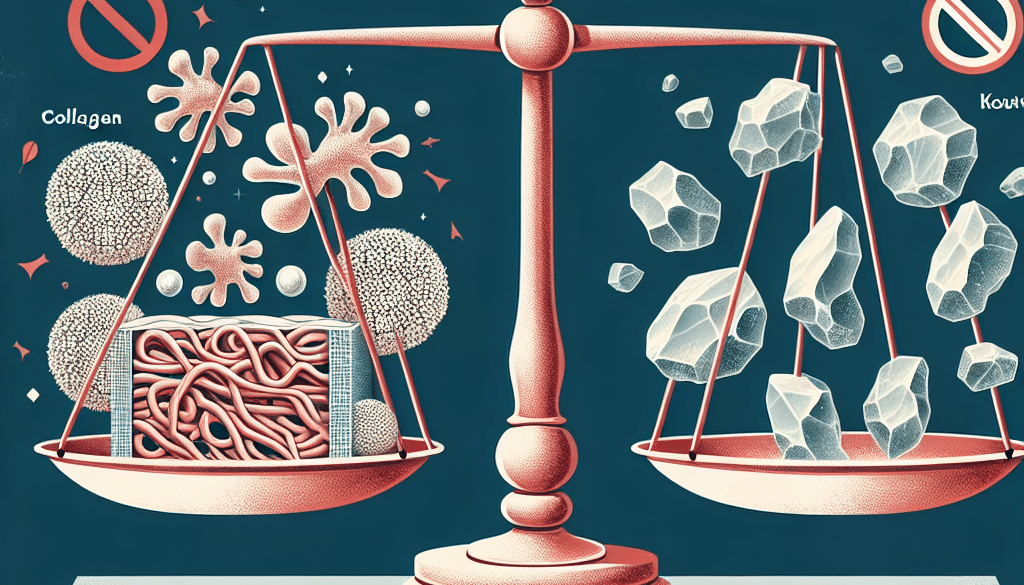Does Collagen Cause Kidney Stones? Myth vs. Reality
-
Table of Contents
- Collagen and Kidney Stones: Separating Fact from Fiction
- Understanding Kidney Stones
- Collagen Supplements: An Overview
- The Myth: Collagen Causes Kidney Stones
- Scientific Evidence: Collagen and Kidney Stone Risk
- Case Studies and Statistics
- Preventing Kidney Stones: Best Practices
- Conclusion: Collagen and Kidney Stones
- ETChem: Your Trusted Source for Quality Protein Products
Collagen and Kidney Stones: Separating Fact from Fiction

Collagen supplements have become a popular choice for individuals looking to improve their skin health, joint function, and overall wellness. However, with the rise in popularity of these supplements, concerns have emerged about their potential side effects, including the risk of kidney stones. This article delves into the scientific evidence to address the question: Does collagen cause kidney stones?
Understanding Kidney Stones
Kidney stones are hard deposits made of minerals and salts that form inside the kidneys. They can cause severe pain and discomfort and may lead to more serious kidney problems if not treated properly. The most common types of kidney stones are calcium oxalate stones, followed by uric acid stones, struvite stones, and cystine stones.
Collagen Supplements: An Overview
Collagen is the most abundant protein in the human body, playing a crucial role in maintaining the structure and integrity of skin, bones, tendons, and ligaments. Collagen supplements, derived from animal sources such as bovine, marine, or chicken, are processed into a form that the body can absorb easily.
The Myth: Collagen Causes Kidney Stones
The myth that collagen supplements lead to kidney stones likely stems from the fact that some stones are composed of calcium, and collagen supplements often contain this mineral. However, the relationship between collagen intake and kidney stone formation is not as straightforward as it may seem.
Scientific Evidence: Collagen and Kidney Stone Risk
Research on the connection between collagen supplements and kidney stones is limited. However, studies that do exist suggest that the risk of developing kidney stones from collagen supplements is minimal for healthy individuals. The key factors that contribute to kidney stone formation include genetic predisposition, dehydration, dietary choices, and certain medical conditions.
- Genetic Predisposition: Some people are genetically more likely to develop kidney stones, regardless of their collagen intake.
- Dehydration: Inadequate fluid intake can lead to concentrated urine, increasing the risk of stone formation.
- Dietary Choices: High intake of oxalates, found in certain foods like spinach and nuts, can contribute to calcium oxalate stones.
- Medical Conditions: Diseases such as hyperparathyroidism and urinary tract infections can increase the risk of stone formation.
Case Studies and Statistics
While individual case studies may report instances of kidney stones in people taking collagen supplements, these are not sufficient to establish a causal relationship. Large-scale epidemiological studies are necessary to determine if there is a significant link between collagen supplementation and kidney stone risk.
Preventing Kidney Stones: Best Practices
For those concerned about kidney stones, there are several strategies to reduce the risk:
- Stay Hydrated: Drinking plenty of water helps to dilute the substances in urine that lead to stones.
- Maintain a Balanced Diet: Limiting high-oxalate foods and reducing salt intake can decrease stone risk.
- Monitor Calcium Intake: While excessive calcium can contribute to stones, a moderate intake is important for bone health.
- Consult a Healthcare Provider: Before starting any supplement regimen, it’s important to discuss it with a healthcare professional, especially for those with a history of kidney stones.
Conclusion: Collagen and Kidney Stones
In conclusion, the current scientific evidence does not support the claim that collagen supplements cause kidney stones in healthy individuals. While it’s important to consider overall health and dietary factors that may influence kidney stone risk, collagen supplements alone are unlikely to be the culprit. As with any supplement, moderation and medical guidance are key to ensuring safety and efficacy.
ETChem: Your Trusted Source for Quality Protein Products
If you’re looking for high-quality collagen supplements, ETChem is a reputable manufacturer and supplier that offers a wide range of collagen products. Their offerings are characterized by a neutral taste and instant solubility, making them a convenient addition to your health regimen. Whether you’re involved in the nutraceutical, pharmaceutical, or food and beverage industry, ETChem provides comprehensive protein solutions to meet your needs.
About ETChem:
ETChem, a reputable Chinese Collagen factory manufacturer and supplier, is renowned for producing, stocking, exporting, and delivering the highest quality collagens. They include marine collagen, fish collagen, bovine collagen, chicken collagen, type I collagen, type II collagen and type III collagen etc. Their offerings, characterized by a neutral taste, instant solubility attributes, cater to a diverse range of industries. They serve nutraceutical, pharmaceutical, cosmeceutical, veterinary, as well as food and beverage finished product distributors, traders, and manufacturers across Europe, USA, Canada, Australia, Thailand, Japan, Korea, Brazil, and Chile, among others.
ETChem specialization includes exporting and delivering tailor-made collagen powder and finished collagen nutritional supplements. Their extensive product range covers sectors like Food and Beverage, Sports Nutrition, Weight Management, Dietary Supplements, Health and Wellness Products, ensuring comprehensive solutions to meet all your protein needs.
As a trusted company by leading global food and beverage brands and Fortune 500 companies, ETChem reinforces China’s reputation in the global arena. For more information or to sample their products, please contact them and email karen(at)et-chem.com today.

